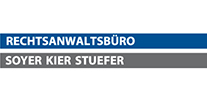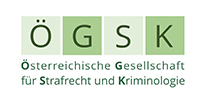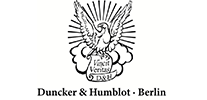Panel 26 - Participatory Justice and Participatory Security
16:00 – 18:00 Uhr im SR 2, Hof 1 (in English)
Moderation: Katrin Kremmel
Participatory justice and participatory security
Ivo Aertsen (KU Leuven Institute of Criminology)
Action research in ALTERNATIVE - Experiences of Insecurity in the four research sites
In the course of four years, teams of researchers in four European countries developed action research models in several settings characterised by various kinds of conflict on the micro-meso-macro scale. The action research in Vienna dealt with everyday conflicts at the micro-level between local residents and residents with migrant background in public/social housing estates. The research program in Kisváros, a small town in rural Hungary, dealt with different sources of tension between the inhabitants (eg. between old residents and newcomers, Roma and non-Roma, etc.). The researchers in Serbia worked with a mixed method approach on the perceptions and involvement of citizens from multi-ethnic communities in three border towns with ethnically diverse population. The researchers in Northern Ireland focused on the relationship between the state system and local communities in three research sites, on the context of the violent conflict and the restorative potential of promoting active citizenship and community development. This presentation will conclude with reflections on the relevance and use of action research in social sciences in general and criminology in particular.
On Restorative Justice
Christa Pelikan (Institut für Rechts- und Kriminalsoziologie (IRKS))
ALTERNATIVE’s understanding of justice has been developed in confrontation with the principles guiding restorative justice. We have arrived at distinguishing three core elements of restorative justice, caught as differences to the ordinary criminal procedure. They are: lifeworld versus system-oriented, participation versus delegation, and reparation versus retribution/punishment.
These principles have been adapted to the requirements of the research topic: ‘conflicts in intercultural settings within democratic societies’, focussing on /readiness to get engaged, /on new ways of perceiving and understanding and / on attempting to work toward a new way of living together.
These new ways are to be informed and shaped by the idea of avoiding domination and assuring each members ‘dominion’.
Aligning action research and restorative justice: highlighting epistemological tensions
Brunilda Pali (Institute of Criminology, Leuven)
The epistemology of participatory action research (PAR) sets a high agenda for pursuing and engendering change oriented towards social justice. This presentation is based on a PAR project, anchored both in principles of restorative justice and action research. The project aimed at mobilizing local participation, knowledge and resources and creating restorative dialogue and encounters in handling social conflicts in intercultural settings in four different countries. Restorative justice and action research are highly compatible in terms of some of their core principles, but the project revealed important tensions that this presentation will reflect upon. Zooming into two action research sites, a town in Hungary and social housing in Vienna -, the presentation will address these tensions by focusing on three central themes: encountering the silence and micropolitics, rethinking conflict participation,and between lifeworld and framing.
The practice of promoting counter-security: A confrontation
Katrin Kremmel (Universität Wien)
Gabriella Benedek (Foresee Research Group, Budapest)
Gabor Hera (Foresee Research Group, Budapest)
In this session, the action reseach carried out within the ALTERNATIVE project will be introduced through the dialogic reflections of researchers who were responsible for fieldwork at two different research sites, the social housing estates in Vienna and the Hungarian village 'Kisvaros'. In a facilitated conversation, the researchers will explore similarities and differences across reserach sites, the lessons learned about participatory routes towards creating restorative justice, counter-security and doing research with locals.
Activating community to address injustices along the frontiers of society in Northern Ireland
Tim Chapman (Ulster University, Belfast)
The ALTERNATIVE action research programme in Northern Ireland examined how restorative justice could contribute to activating community in relation to conflict in intercultural settings. The research stimulated new ways of conceptualising communitt, justice and truth in relation to the practices of restorative justice. This presentation will report on these findings.






